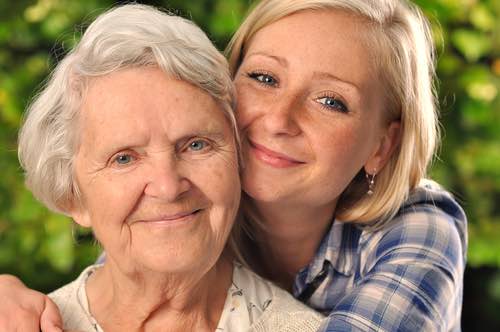
When your spouse faces a decline in physical ability as a result of illness or a chronic condition, caring for them is an act of love. You want to be sure their needs are met and that you spend as much time enjoying their company as possible. But that can be difficult when you are also responsible to care for the home, do the grocery shopping, prepare nutritious meals, and take care of your own needs. That’s when companion care can help.
What Is Companion Home Care?
Companion home care steps in to assist with daily needs that have become overwhelming. Unlike a home nurse or a skilled nursing facility, companion care does not provide medical oversight or perform medical tasks. Instead, a companion caregiver is there to help you enjoy the best possible quality of life by checking in on you regularly, spending time with your spouse or loved one when you aren’t able to be there, and providing needed support. Along with companion care, your caregiver may also assist you or your spouse with personal care needs, transportation, and responsibilities around the home.
When Is Companion Care the Best Option?
Companion care is designed to provide support and connection when you feel like the burden of care has become overwhelming. But how do you know if it is the right option or if you need another kind of assistance? Let’s consider some specific circumstances:
-
When you feel isolated and lonely. Sometimes the burden of caregiving begins taking so much of your time that you are no longer able to leave the house or interact with friends and family. Loneliness can contribute to many health conditions, including high blood pressure, obesity, and even stroke. Companion care provides relief from those feelings of loneliness and supports better overall health.
-
When you have to be away from your loved one. If you still work or if you have other responsibilities outside the home, you may be concerned about leaving your spouse alone. Companion care provides peace of mind that he or she is cared for and has some social interaction when you are away.
-
When your family lives far away. If your family lives too far to visit often, you may not have many opportunities to get out of the house or to make social connections. Companion care makes sure your loved one has someone to spend time with while you run errands or meet up with friends.
-
When you notice signs of depression in yourself or your spouse. One serious risk of isolation is that it can contribute to depression. When your spouse is too ill to leave the house, both of you may begin experiencing symptoms of depression as you remain confined at home. While you should always talk to your doctor if you suspect that you or your spouse may be suffering from depression, it can also help to have a caregiver come by several times each week to talk, play games, or drive you to an activity.
What Services Are Available Through Companion Care?

-
Reading
-
Playing games
-
Attending religious services
-
Taking walks together and assisting with physical activity
-
Sharing tasks like cooking and gardening
-
Transportation and accompaniment to social activities
-
Participating in hobbies
-
Enjoying conversation
What’s Your Next Step?
If you believe companion care is the right choice for you and your spouse, the next step is to find a home care agency you trust. The agency will talk with you about your needs and match you with a caregiver who is a good fit for your unique situation.
Do you have questions about companion care? Cherished Companions is here to help! Call us to learn more.
{{cta(‘6a691ae8-409b-4b09-a1d5-2864ffe1c1b5’)}}






